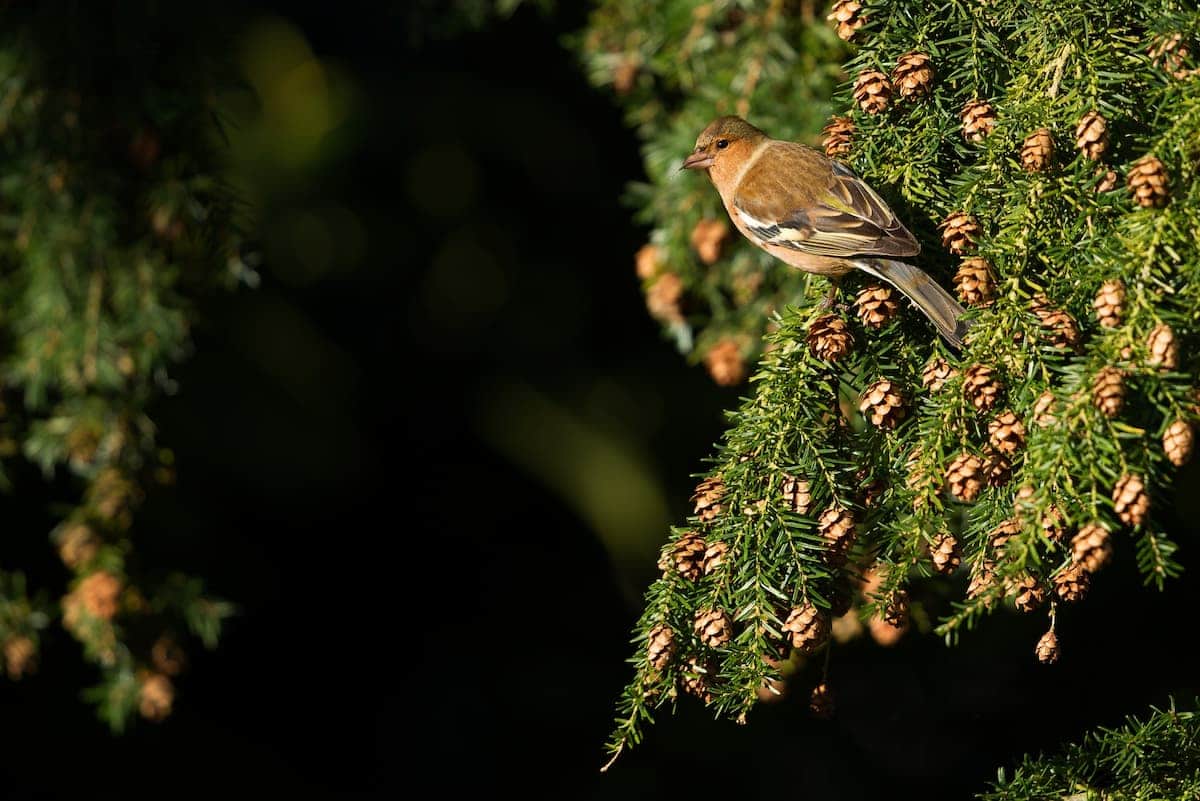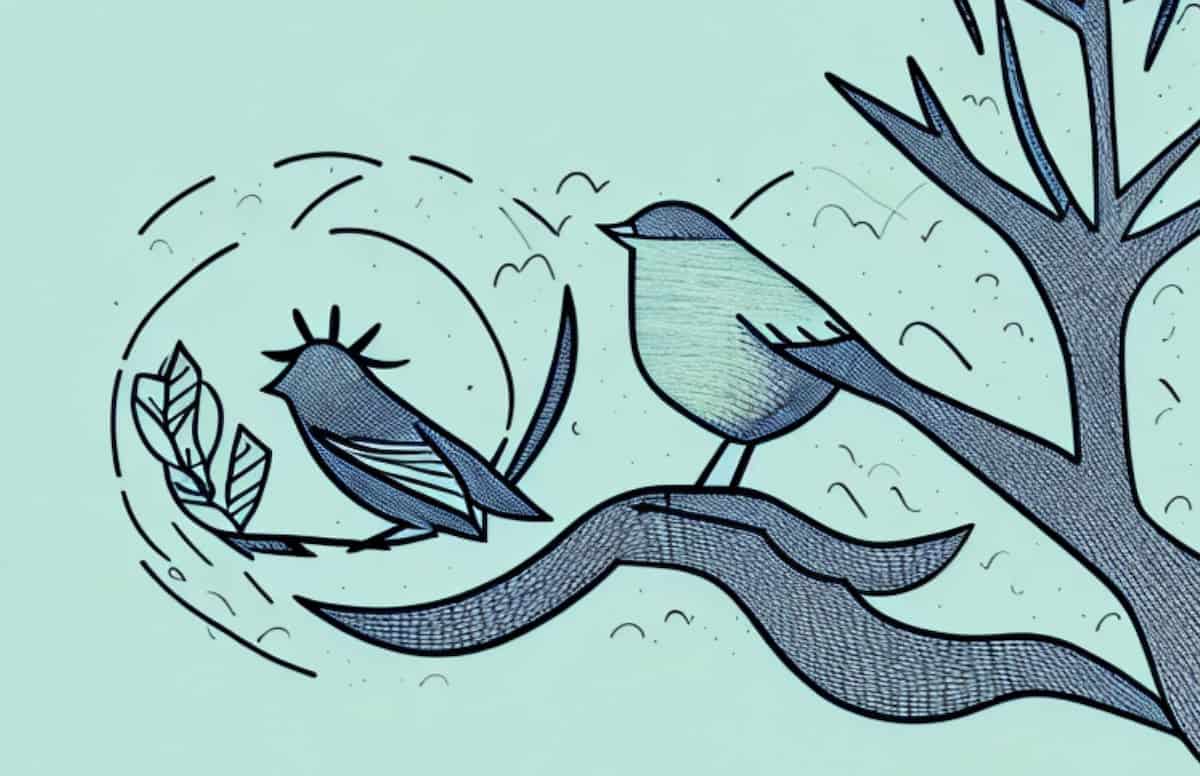Hummingbirds are some of the most incredible and fascinating birds on the planet. These tiny birds with powerful wings and the ability to hover in the air appear seemingly tireless, but like all animals, even hummingbirds need rest. However, their unique biology means that they sleep differently than other birds. In this article, we explore the sleep habits of these incredible creatures to gain a better understanding of their behavior.
Introduction to Hummingbirds
Hummingbirds are some of the smallest birds in the world, and some species can even measure as small as 3 centimeters in length. These tiny creatures exhibit low metabolic rates, meaning that they require an incredibly small amount of energy to survive compared to other birds. This makes hummingbirds capable of traveling long distances, and giving them the capability to perform their remarkable hovering. While they usually eat a diet consisting of nectar and small insects, these energy-efficient birds require frequent feasting so that they can keep up with their constantly active lifestyle.
Hummingbirds are also known for their vibrant colors, which can range from deep blues and greens to bright reds and oranges. This coloration is used to attract mates and to help them stand out in their environment. Additionally, the colors of hummingbirds can also help them to blend in with their surroundings, making them less visible to predators. Hummingbirds are also capable of flying in any direction, including backwards, and can reach speeds of up to 60 miles per hour.
Exploring the Sleep Habits of Hummingbirds
Hummingbirds exhibit some very unique sleep habits compared to other birds. A study conducted by the University of Wisconsin-Madison worked to analyze and compare the sleep habits of hummingbirds to other bird species. By monitoring electroencephalogram (EEG) data from a variety of bird species, the team made some remarkable discoveries.
On average, hummingbirds sleep for less time than other bird species, between 10 and 12 hours each day. However, the unique sleeping pattern of hummingbirds makes them very hard to detect while they sleep, as they do not enter deep sleep like other birds, meaning that they can quickly flap away if startled. In fact, hummingbirds often switch between sleeping with one eye open and completely awake in seconds.
Hummingbirds also have the ability to enter a state of torpor, which is a type of hibernation. During this state, their body temperature and metabolic rate drop significantly, allowing them to conserve energy. This is especially useful for hummingbirds living in colder climates, as they can use this state to survive the winter months.
How Long Do Hummingbirds Sleep?
On average, hummingbirds sleep for less time than other bird species, between 10 and 12 hours each day. However, they often take multiple short sleep breaks throughout the day and night, meaning that their total sleeping time may accumulate over 24 hours. Interestingly, hummingbird species found in more warm climates tend to sleep for longer amounts of time than more northern species.
Hummingbirds are able to enter a state of torpor, which is a type of hibernation-like state that helps them conserve energy. During torpor, hummingbirds can reduce their body temperature and slow their metabolism, allowing them to sleep for longer periods of time. This is especially beneficial during cold winter nights, when food sources are scarce.
Where Do Hummingbirds Sleep?
Hummingbirds often roost in heavily shaded areas such as forests and shrubs when they sleep, but they also have been known to use building eaves, railings, and even human-made houses for roosting. During migration hummingbirds may also rest on treetop branches and bushes.
Hummingbirds typically sleep for around 10-15 minutes at a time, and they may take several naps throughout the day. They usually sleep in the same spot each night, and they may even return to the same spot for several nights in a row. Hummingbirds also tend to sleep in the same position each night, with their heads tucked into their back feathers.
Why Do Hummingbirds Sleep?
Hummingbirds sleep in order to conserve energy to maintain their active lifestyle. This is why hummingbirds tend to take multiple short sleep breaks rather than long uninterrupted periods of rest. They also need to enter into deeper sleep stages in order to restructure their muscles and repair damage done during long flights.
Hummingbirds typically sleep in a hanging position, with their feet tucked up against their body and their beak tucked into their feathers. This helps them to conserve heat and energy while they sleep. They also tend to sleep in sheltered areas, such as in the branches of trees or in the eaves of buildings, to protect themselves from predators.
Do Hummingbirds Experience REM Sleep?
Hummingbirds experience two different types of sleep: slow-wave sleep and REM sleep. Slow-wave sleep is a light restorative sleep that requires minimal brain activity whereas REM sleep is a deeper stage of sleep during which vivid dreaming occurs. As hummingbirds don’t enter deep sleep like other birds, it means that hummingbirds don’t go through periods of REM sleep – but when they do, the dreaming is likely more abstract than normal.
What Are the Benefits of Hummingbird Sleep?
Like all animals, hummingbirds need periods of rest in order to conserve energy and repair damage done during long flights and periods of activity. Additionally, sleeping helps hummingbirds to keep their tiny bodies warm, as this is when they can trap the most heat into their feathers, helping them survive cold climates. Lastly, hummingbird sleep helps them keep alert and aware so that they can defend themselves from predators.
Conclusions on the Sleep Habits of Hummingbirds
Hummingbirds have an incredibly unique and fascinating sleeping behavior compared to other birds. Their small size and low metabolic rate mean that these birds can survive on minimal food intake, and can travel long distances with ease. They also exhibit an unusual form of sleep that involves multiple short periods of rest spread out across day and night. While the benefits of hummingbird sleep may not be immediately clear, research has shown us that these birds take small sleep breaks in order to conserve energy, restructure their muscles, and repair damage done during long flights.





